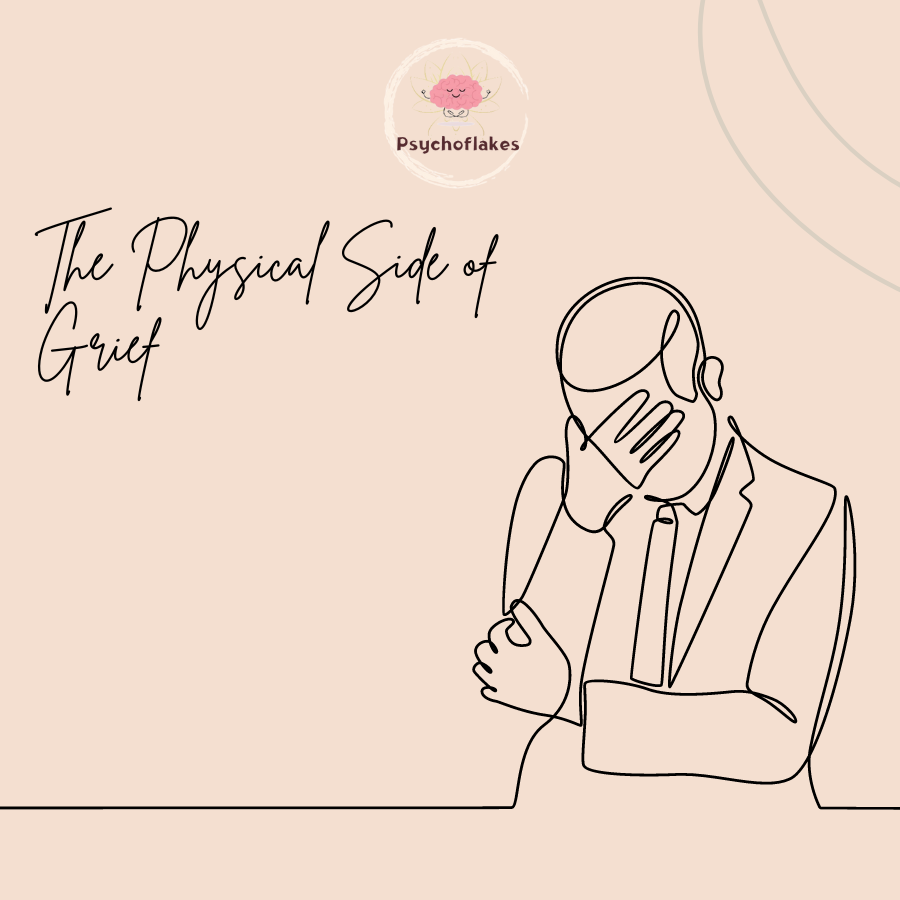
An individual may experience intense grief, a challenging emotional state that can dominate one’s thoughts and make it difficult, if not impossible, to focus on anything else. The Physical Side of Grief is significant, and for some, the overwhelming nature of these emotions may lead them to suppress or mask their feelings, either intermittently or consistently.
Grief can often mirror the symptoms of depression, and it’s not uncommon for individuals to develop depression in the aftermath of a significant loss.
In the immediate aftermath of a death, those left behind often grapple with shock, numbness, and denial, especially if the loss was unexpected. As the reality of the death sets in, feelings of intense sadness, emptiness, loneliness, anger, or guilt may emerge. These emotions can be painful, persistent, or overwhelming, often coming in waves that may temporarily recede before resurfacing. However, with time, these emotions tend to gradually diminish.
Responses to grief are highly individualized, with common feelings including sadness, shock, denial, numbness, anger, guilt, blame, and sometimes even relief. Grieving individuals may exhibit different behaviours than usual, experiencing difficulty concentrating, withdrawal from regular activities, engaging in substance use, or having thoughts of self-harm or an inability to carry on.
Grief can take a toll on physical health, leading to exhaustion and weakened immune systems, making individuals more susceptible to illness. It can impact appetite, sleep, and contribute to various physical discomforts such as headaches and body aches.
On a spiritual level, individuals may have dreams about their loved ones, seeking meaning and reevaluating their spiritual beliefs in the wake of loss.
While some people experience post-traumatic growth, finding wisdom, maturity, and new meaning in life after grief, others may struggle with complicated grief. Prolonged grief, also known as complex or complicated grief, is an enduring form of intense grief that makes it challenging for individuals to cope with the loss. Rather than progressing toward a more positive outlook, thoughts may become fixated in a dark, sorrowful place.
Those experiencing prolonged grief may feel emotionally paralyzed, unable to envision a future beyond the pain. Characteristics of prolonged grief include confusion, overwhelming sadness, extreme thoughts or behaviours, and an enduring longing for the past. Individuals in this state may find themselves trapped in a cycle of preoccupation with memories of the deceased, making the future seem bleak and despairing.
How to Take Care of the Physical Side of Grief?
1. Make Conscious Use of your Feelings.
When you are mourning, your first priority is expressing your feelings. It’s been believed that you cannot heal if you are emotionless. As a result, it’s critical to allow yourself to experience your emotions. Engage in self-kindness frequently. You don’t have to control this part of your life, particularly while you’re going through a grieving season. It’s up to you how you choose to communicate your feelings. Another excellent way to connect with your emotions is to join a support group at a nearby community or religious centre.
2. Engage in Daily Mindful Movement
Engaging in daily physical activity helps alleviate the somatic suffering associated with bereavement. Exercises that target the mind and body, such as yoga, tai chi, or qigong, can be especially beneficial in calming the body and counteracting the negative effects of stress and anxiety. According to research, various types of exercise reduce the activation of genes that cause inflammation in the body, which has a molecular effect (Bui, 2017).
3. Engage in Mindfulness
Developing a meditation routine, engaging in breathwork, or going on an outdoor stroll or walk are some other suggestions for mindful movement. These pursuits help reduce anxiety, melancholy, and self-pity. Ask a friend to help, or sign up for a fitness class.
How to Take Care of Yourself while Grieving?
1. Rely on Friends and Family
Seek support from friends and family during this challenging time. Instead of avoiding them, bring your friends and loved ones closer, spend quality face-to-face time with them, and be open to the assistance they offer. Often, people genuinely want to help but may not know how, so communicate your needs—whether it’s a comforting presence, a listening ear, or simply someone to spend time with. If you feel that you lack regular in-person connections, remember that it’s never too late to cultivate new friendships.
2. Acknowledge your Feelings
Confront your emotions head-on. While attempting to suppress grief is an option, it’s not a sustainable one. Healing requires acknowledging the pain. Avoiding feelings of sadness and loss merely extends the grieving process. Unresolved grief may contribute to complications such as depression, anxiety, substance abuse, and health issues.
3. Engage in Creativity
Express your emotions in a tangible or creative manner. Even if discussing your loss with others is challenging, consider documenting your thoughts and feelings in a journal. Alternatively, channel your emotions into creative outlets like creating a scrapbook or engaging in volunteer work related to your loss.
4. Engage in Hobbies and Activities
Continue to engage in your hobbies and interests. Returning to familiar activities that bring joy and foster connections can provide comfort and assist in coming to terms with your loss, facilitating the grieving process.
Grief can also often be compared to a silent companion that emerges in the aftermath of loss. Another way to understand the physical side of grief in a more relatable manner is as follows:
5. Grief as a Roller Coaster
Grief is like a roller coaster, taking lots of turns, ups and downs through various angles, nooks and corners. It manifests as sadness, the ache of loss, anger, the injustice that comes with separation, guilt, and the weight of unanswered questions.
If you experience grief this way, you can do an emotional check in with yourself.Take a moment to reflect on your emotional state. What turns, ups and downs and angles are you grieving today? Acknowledge them without judgement; each emotion is a valid expression of your unique journey.
6. Grief as a Canvas
Often our bodies become a canvas upon which grief paints its physical side of grief manifestations. It may appear as a lump in the throat, a heaviness in the chest, or the pit in the stomach. Fatigue, changes in appetite, and disrupted sleep patterns are the more common colours of the canvas and are reminders that our emotional and physical well-being are interconnected.
Any sensations and tensions that come up can be noticed. This activity can help be more attuned with your body.
7. Grief as a Game
Grief can often be a mind game where a mental dialogue is constantly going on. This game can also involve memories. The mind becomes a storyteller, weaving narratives of love, loss, and the enduring legacy of those we hold dear.
To conclude, its important to keep in mind that everyone’s grief is personal and subjective. There is no one particular way to heal that works for everyone. It is about doing what works for you. No one should tell you to move on or get over it. Allow yourself to feel without any judgment or sabotage. It’s acceptable to experience anger, to express your emotions, to cry or not to cry. Similarly, it’s permissible to find moments of joy, to laugh, and to let go when you feel ready. Heal at your own time.

